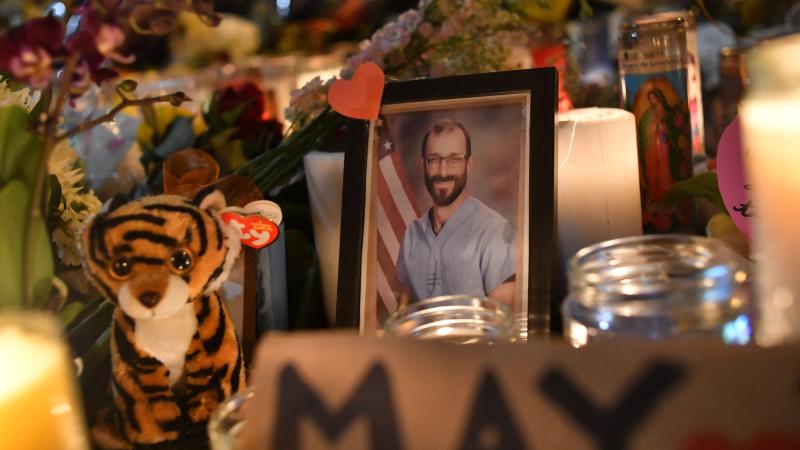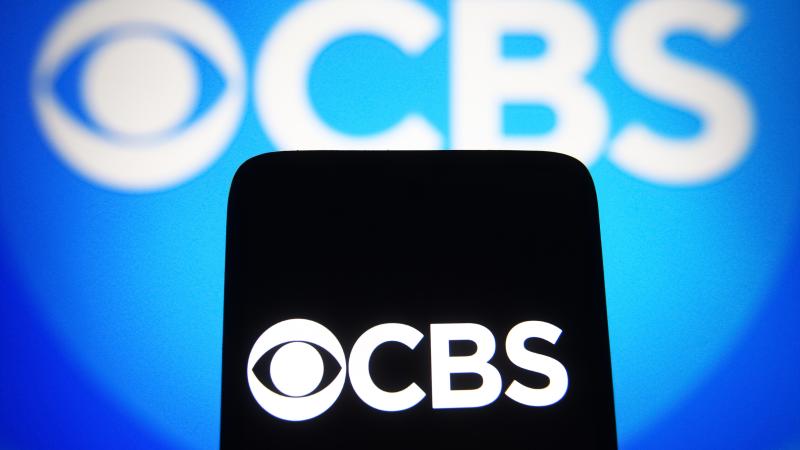Public college officials that banned anticommunist, pro-life flyers sued for personal liability
Second lawsuit in a month by Foundation for Individual Rights and Expression seeking to overcome qualified immunity for public college officials that allegedly ignored First Amendment obligations.
Public college officials are facing the prospect of personal liability for allegedly unconstitutional restrictions on student and faculty speech, by ordering the removal of flyers and a syllabus that caused offense.
The Foundation for Individual Rights and Expression has filed two lawsuits within a month that seek to overcome the judicial doctrine of qualified immunity, which trial and appeals courts have withheld from public college officials for viewpoint discrimination in recent years.
Public records obtained by the civil liberties nonprofit show that on Nov. 12, Lori Bennett, president of California's Clovis Community College, banned flyers that are not "club announcements" to justify the removal of Young Americans for Freedom's anticommunist flyers. She said Vice President of Student Services Alejandro De La Garza helped devise the rationale.
Initially approved for posting in academic buildings, the flyers provided death totals attributable to "progressive social movements" in China, the Soviet Union and other communist regimes and questioned their ability to provide basic necessities for their people. Each version read: "Let us ever beware the destructive influences and blind arrogance of the Left."
"Please don't share this email," Dean of Student Services Gurdeep Hebert told Senior Program Specialist Patrick Stumpf in forwarding Bennett's removal instructions.
"Let me know how this sounds," Stumpf responded in a paragraph redacted in the records.
Four days earlier, administrators discussed how to justify the removal in light of the YAF chapter's official recognition and the college's previous approval of its "political type posters."
While "several people ... are very uncomfortable" with the flyers and one threatened to file a harassment claim, "Patrick said that it's a gray area because of free speech," Executive Assistant Leslie King wrote.
Within an hour, Stumpf had found a sentence in the flyer policy that prohibits posters with "inappropriate or offens[ive] language or themes" and said Clovis could argue the initial approval was a "mistake." In an email to a broader group, he asked Vice President of Administrative Services Lorrie Hopper to "let me know what [redacted] says and we['ll] gladly take them down."
It's not clear from the public records FIRE has published how or why the college switched from the "inappropriate" to the "club announcement" rationale. Media Relations Manager Katie Kortepeter told Just the News it still has many emails to publish.
But Stumpf admitted to Hebert that staff approved "the same" so-called Freedom Week flyers two years earlier. He also worried how Clovis could have responded if YAF had distributed the flyers from its booth at a campus fair.
Hebert later invoked the "club announcement" rationale, which was never incorporated into the flyer policy, to banish YAF's pro-life flyers to a decrepit "free speech kiosk" in a deserted part of campus.
The flyers called abortion "the leading cause of death," said "life begins at conception," and declared that "women's rights begin in the womb." Given prior requests that were approved within minutes, YAF leaders sought approval to post them early Dec. 1, the day the Supreme Court heard oral arguments in Dobbs.
They still hadn't been given an answer nine hours later, according to FIRE's Clovis suit. Hebert denied the request the next day and took a week to give the club a reason.
"Other students and clubs regularly post flyers with political and social commentary or themes on the indoor bulletin boards of the Academic Centers," showing the rationale was pretextual, the suit says.
Neither the college nor the State Center Community College District is identified as a defendant, just Bennett, Hebert, Stumpf and De La Garza in their personal and official capacities.
Clovis spokesperson Stephanie Babb told Just the News it doesn't comment on pending litigation.
FIRE is representing the YAF chapter and leaders Alejandro and Daniel Flores and Juliette Colunga. It's challenging the flyer policy both facially — for prior restraint, subjectivity, vagueness and overbreadth — and as applied to the plaintiffs for viewpoint discrimination.
"No reasonable public college administrator would deny students the right to hang flyers where other students are permitted to do so because of the political or social viewpoints the flyers express," the suit says, asking for injunctive relief and punitive damages against the officials for reckless disregard of constitutional rights.
Last month, FIRE followed through on its January threat to sue the University of Washington for censoring an instructor's syllabus and creating a "shadow section" competing with his class because of his cheeky "land acknowledgement."
The Allen School of Computer Science and Engineering had invited faculty to acknowledge the Coast Salish people's historic claim to UW's land. Stuart Reges, an 18-year veteran, modified the text to say they could claim "almost none" of the land under political philosopher John Locke's "labor theory of property."
After Reges told a faculty listserv he would include the same text going forward, UW opened an ongoing disciplinary investigation for possible violations of campus policies. One is an executive order that authorizes the university to punish "unacceptable or inappropriate" conduct regardless of whether it's unlawful.
FIRE's UW lawsuit names Allen School Director Magdalena Balazinska, Vice Director Dan Grosssman and Engineering Dean Nancy Allbritton as defendants in their official and personal capacities, and President Ana Mari Cauce officially only.
The suit accuses officials of falsely claiming the syllabus caused "disruption to instruction"; favoring faculty whose land acknowledgments match UW's own; and chilling Reges' speech through the investigation, which could end with his termination.
Unlike the Clovis suit, FIRE is not seeking punitive damages against the three officials, just compensatory damages for violating Reges' constitutional rights and causing him "significant emotional distress and reputational harm."
It's seeking an injunction against the investigation, future shadow sections of his courses and the executive order, and declarations that UW's actions violate his rights and the executive order violates the First Amendment.
UW has yet to respond in court but told Seattle tech news site GeekWire it didn't violate the instructor's rights.
The Facts Inside Our Reporter's Notebook
Documents
Videos
Links
- trial and appeals courts have withheld from public college officials
- Lori Bennett spontaneously banned flyers
- Four days earlier, administrators discussed how to justify
- Within an hour, Stumpf had found a sentence
- flyer policy
- pro-life flyers
- "free speech kiosk"
- FIRE's Clovis suit
- January threat to sue the University of Washington
- executive order
- FIRE's UW lawsuit
- GeekWire
















